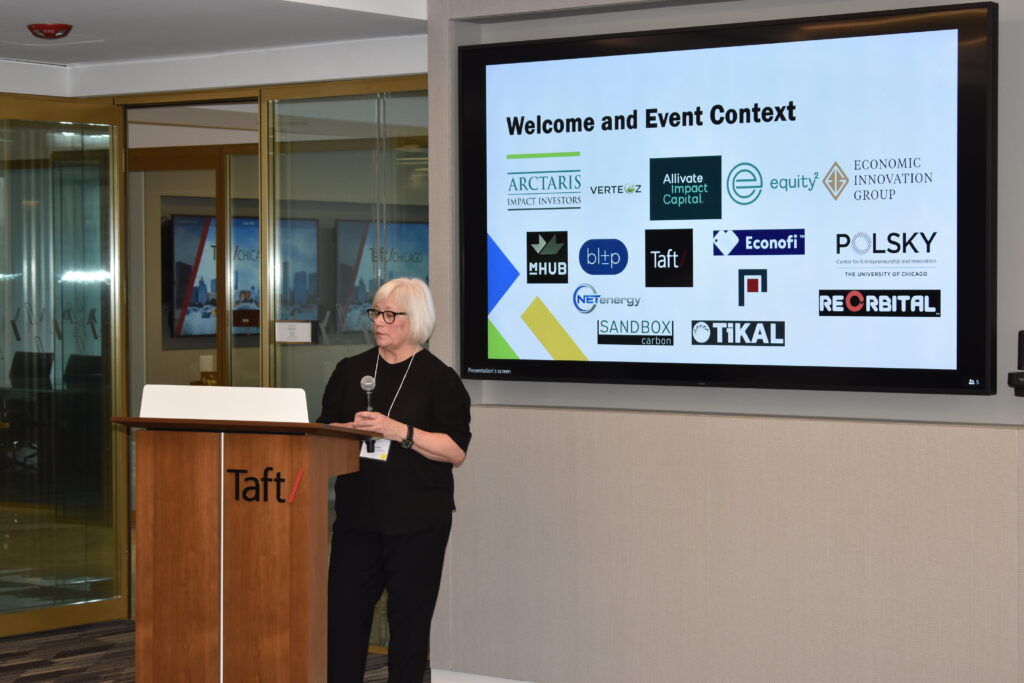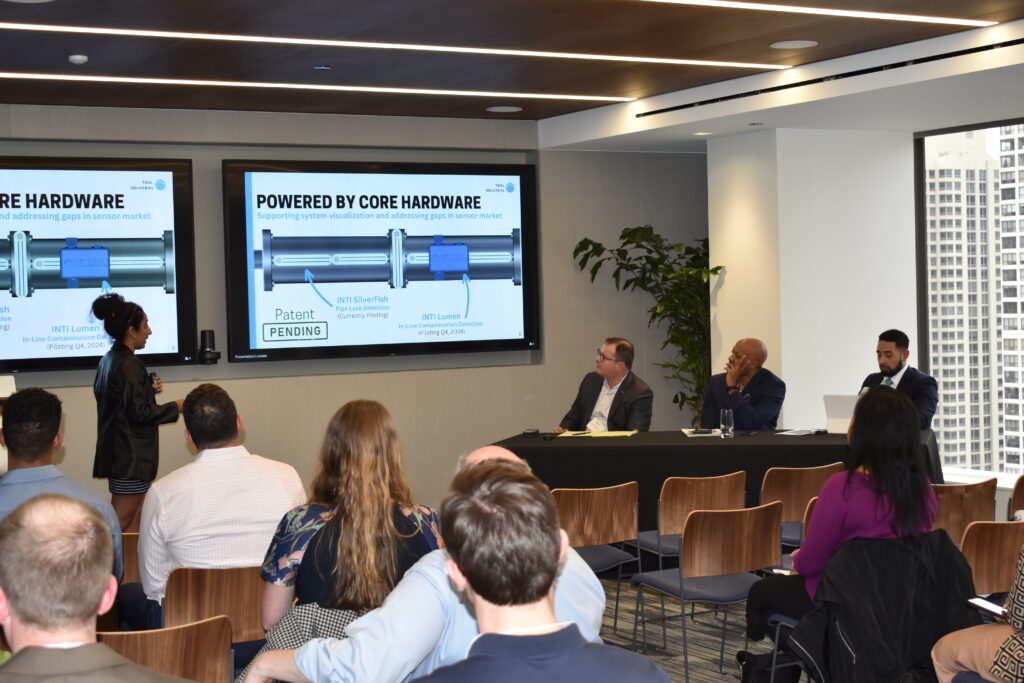
On February 21, the Chicagoland Opportunity Zones Consortium (COZC) hosted an Investment Showcase to spotlight the work of early-stage business entrepreneurs advancing original and impactful ventures on the south and west sides of Chicago. The COZC partnered with Taft, Stettinius & Hollister LLP who fully supported the event including the use of their state-of-the-art conference center and related resources.
With innovative business models focused on financial inclusion, climate change curbing technologies, and affordable microgravity manufacturing, six local startups had an opportunity to pitch their ideas to Opportunity Zones (OZ) experts, fund managers, and other impact-oriented investors. In return, the startups made important connections, and gained insights and recommendations on seeking OZ equity capital.
The panelists included:
• Ben Bornstein, Arctaris Impact Investors
• Daniel Galindo, Allivate Impact Capital (a subsidiary of Woodforest Financial Group)
• Catherine Lyons, Economic Innovation Group
• Len Mills, Verte OZ Fund
• Anthony Williams, Equity Squared
The event received positive feedback, and garnered significant traction on social media including repostings and panelist participant postings. Daniel Galindo stated that the “The spirit of entrepreneurship is alive in Chicago . . .” and thanked the COZC for its work, and for hosting the event noting that “Investing in operating businesses located in Opportunity Zones is critical.” COZC member and World Business Chicago’s Senior Vice President, Lisa Dziekan, congratulated the Consortium “…for the strong pitch event…” and suggested more such events in the future.
The Investment Showcase was the culmination of a COZC technical assistance initiative focused on start-ups growing in business incubators and accelerators located on Chicago’s south and west sides. Launched by the COZC with the support of philanthropic partners (Chicago Community Trust, JP Morgan Chase Foundation, MacArthur Foundation), this initiative was designed to expand the understanding of this community development tool related to business financing via the OZ incentive and ensure that this information is accessible to local entrepreneurs in all communities.

One of the most significant federal incentives for community development created in decades, the OZ tax incentive was designed to propel private capital to long-term equity investments in real estate projects and operating businesses in under-resourced communities throughout the nation.
For the OZ incentive to work most effectively, strategic collaboration across local stakeholders is key. The COZC offers just that, serving as a unique national model by bringing together OZ investors with local developers, businesses, entrepreneurs, government, philanthropy and community.
This spirit of collaboration is why the COZC took an ecosystem approach to celebrating start-ups and ensuring they have access to information about OZ financing. Through a competitive process, the COZC selected Polsky Exchange and Duality Quantum Accelerator, both part of the Polsky Center for Entrepreneurship and Innovation at the University of Chicago, and mHUB Chicago to serve as programmatic partners for the initiative.
Information regarding OZs was incorporated into mHub’s and Polsky Center’s existing incubator and accelerator curriculums in a way that educated start-ups about the OZ incentive, shared strategies to engage OZ investors, and provided information on steps the businesses could take to position themselves to receive OZ investments.
Many articles have been written about the importance of investing in Chicago’s south and west side communities, strengthening our region’s economy and the quality of life. Finding creative ways to highlight the capital needs of local entrepreneurs in overlooked communities is a hallmark of the COZC. By expanding the understanding of tools and incentives available to local entrepreneurs, we can build greater pathways to harnessing private capital for the benefit of local communities. As the Economic Innovation Group points out, the OZ initiative is “breaking new ground and challenging us to reimagine what federal tax policy can achieve.”